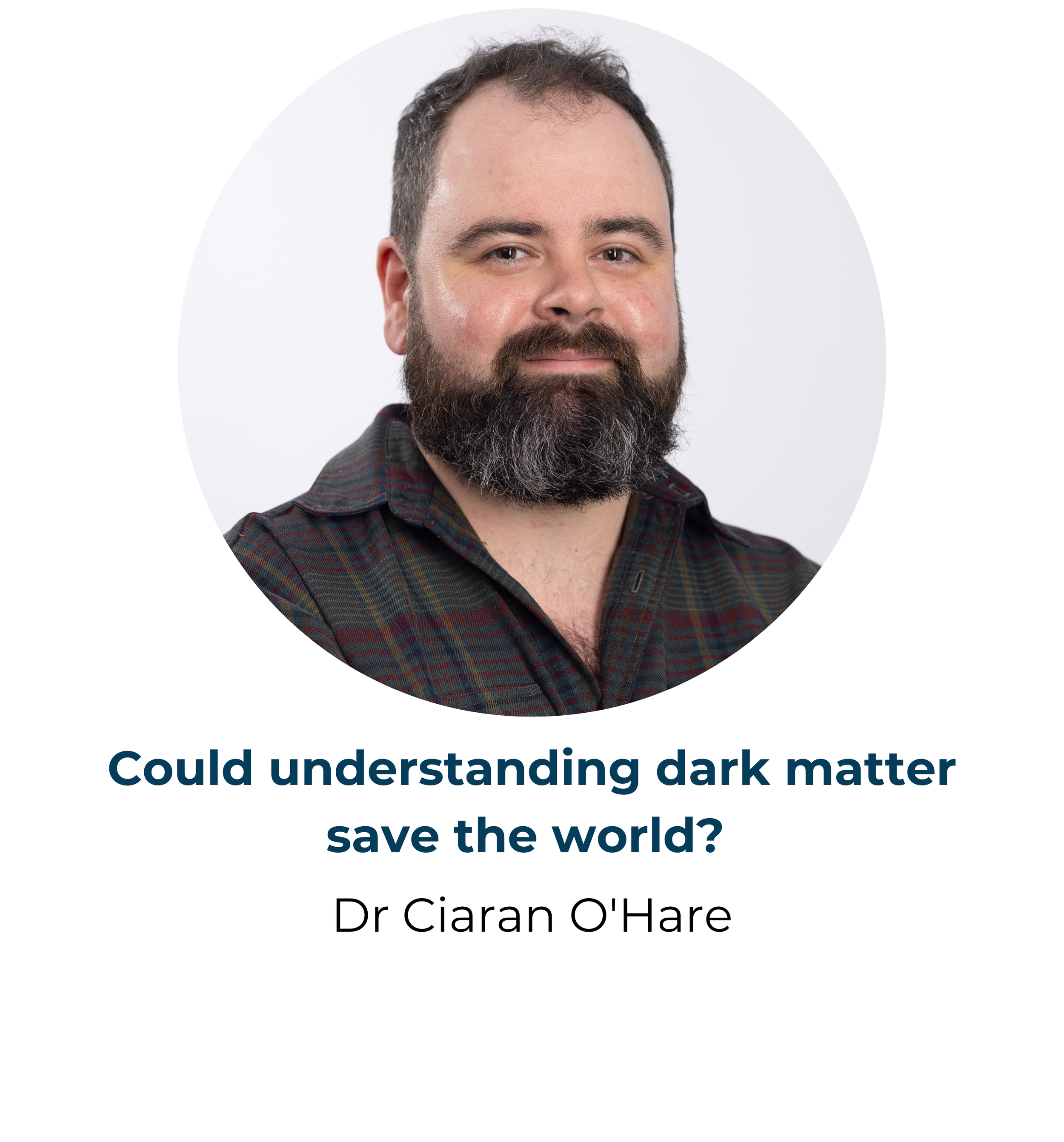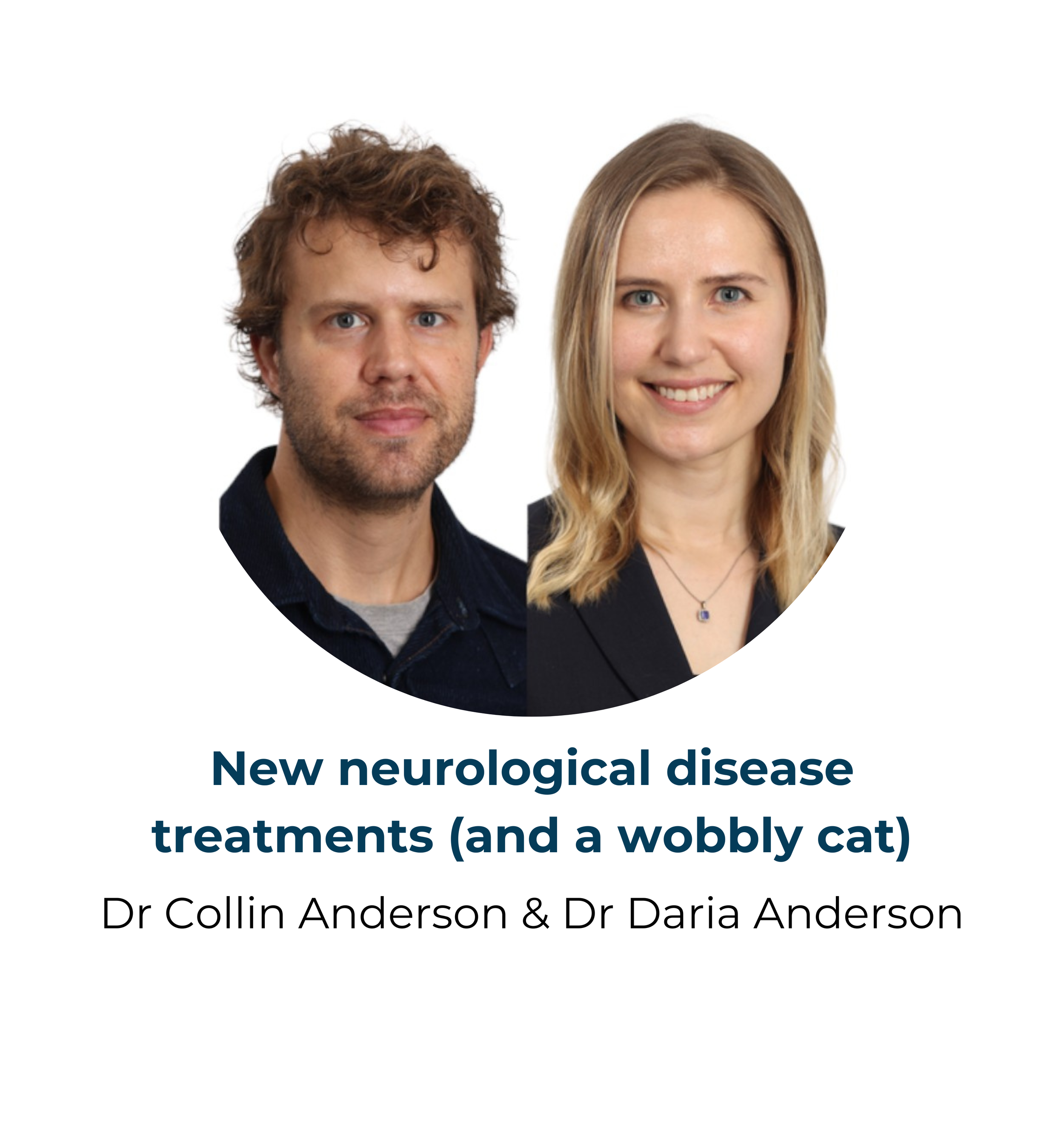New neurological disease treatments (and a wobbly cat)
Two neuroscientists share the latest in electrical and viral neurological disease treatments.
Join Drs Anderson, who met while pursuing their PhD research, to learn about what’s involved in improving therapies for neurological conditions: movement disorders, epilepsy and Tourette syndrome. Find out about pioneering therapies that use electrical interfacing with the brain and apply viruses to the nervous system.
You’ll also hear how the researchers’ cat Phineas, who was born with a wobbly stance, helped start a worldwide dialogue on rare neurological diseases.
Bios
Dr Collin Anderson is a Lecturer in the School of Medical Sciences at the University of Sydney. His research interests centre on cerebellar ataxias, Christianson syndrome, Parkinsonism, essential tremor and Tourette syndrome. Outside of work, Dr Anderson is the cat-dad to Tyrion and Phineas, the latter of which was born with an underdeveloped cerebellum and stars in the world-famous Instagram account @orangeisthenewblackandtan.
Dr Daria Anderson is a Lecturer for the School of Biomedical Engineering at the University of Sydney. Her current research explores the use of computational approaches in epilepsy. Beyond academia, Daria enjoys hiking, knitting and sewing, especially making outfits for her wobbly cat, Phineas.
Event
Tuesday 9 April, 8:00 PM @Fortress Sydney, Central Park Mall, Level 2/28 Broadway, Chippendale NSW 2008, Australia
The other talk at this location is The blueprint for building cooler cities at 6:00 PM
Fortress Sydney is the ultimate destination for games and entertainment! They offer a one-of-a-kind experience that transports you to a world of fantasy and excitement.























